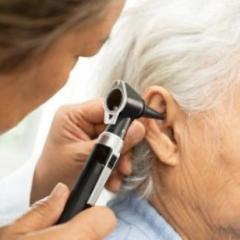 Emma was just 33 when her world changed.
Emma was just 33 when her world changed.
In 2016, she experienced a stroke. In the days and weeks that followed, she struggled to find her words. Conversations became confusing and frustrating. She thought she was going crazy.
Nearly a year passed before a speech pathologist finally gave her an answer: aphasia.
Emma remembers the moment clearly. “What’s aphasia?” she asked. She had never heard the word before. When she looked it up, she felt a strange relief - finally, she had a name for what she was experiencing.
She rang her mum, Kim, and said, “I’ve got aphasia.” Her mum’s response? “What’s aphasia?”
Without that diagnosis, without that single word, Emma and Kim had spent nearly 12 months in the dark — unable to find the information or support they desperately needed. It was a lonely, frustrating time.
Emma and Kim are not alone in this experience.
Why Aphasia Awareness Matters
Aphasia is a communication disability that affects a person’s ability to use or understand words. It does not impact intelligence — but it can impact almost every part of life.
People with aphasia face daily barriers that most of us take for granted. It can affect:
- Relationships with family and friends
- Employment and education opportunities
- Access to services like banking and healthcare
- Participation in hobbies and social activities
These barriers often lead to financial stress, emotional distress, reduced quality of life, and devastating social isolation.
And yet, awareness remains heartbreakingly low.
Aphasia affects millions of people worldwide, but too many are still met with confusion — even from their closest loved ones — simply because they've never heard of it. This lack of understanding means fewer services, fewer opportunities, and fewer resources for people with aphasia to thrive.
To change this, the global aphasia community has come together — across more than 40 countries — to launch the first-ever unified public awareness campaign.
This campaign isn’t just about education. It’s about visibility. Empowerment. Inclusion.
It’s been co-designed by people living with aphasia, shaped by their stories, and driven by a collective vision: a world where people with aphasia are supported, heard, and understood.
Help Us Turn Awareness into Action
Emma’s story is one of many. And while awareness is growing, we can’t stop here.
With your help, we can continue building this global movement. Your donation will go directly towards supporting aphasia awareness, advocacy, and services that help people like Emma reclaim their voices and their lives.
Donate today and be part of the change.



